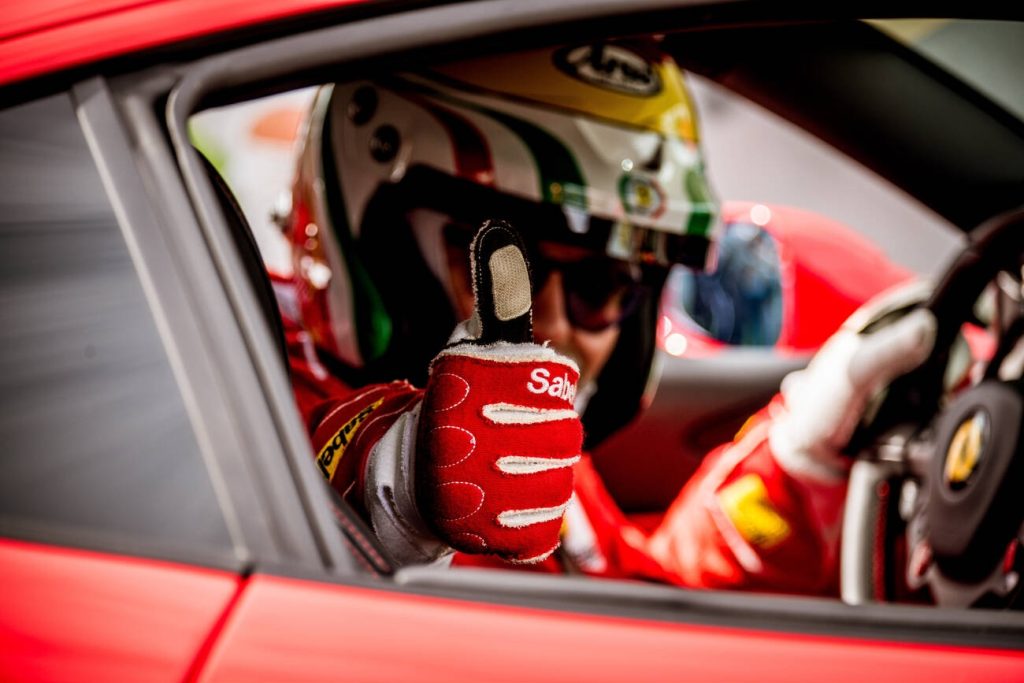Avoiding certain foods before a car race is crucial to prevent discomfort and maximize your energy levels. In this article, we will discuss what foods you should steer clear of before hitting the accelerator. By following these guidelines, you’ll ensure that your body is fueled with the right nutrients and ready to tackle any race with speed and precision. So let’s dive in and discover what not to eat before a car race!
High-Fat Dairy Products
You should avoid high-fat dairy products before a car race because they can cause cramps, gas, and diarrhea, which can negatively impact your performance. Instead, opt for dairy alternatives if you are lactose intolerant or want to avoid digestive discomfort. There are plenty of options available such as almond milk, soy milk, or coconut milk that provide similar nutritional benefits without the negative effects on digestion. Additionally, consider alternative protein sources like lean meats or plant-based proteins instead of relying solely on dairy products for pre-race nutrition. By making these substitutions, you can fuel your body effectively without risking any digestive issues that may hinder your performance on race day.
Spicy Foods
Spicy foods can cause discomfort and heartburn during a car race. They have the potential to impact your performance and lead to potential digestive issues. It’s important to consider timing when consuming spicy foods before a race, as you don’t want to experience any discomfort while driving. If you enjoy spicy flavors, there are alternatives you can explore that won’t have the same effect on your digestion. Consider incorporating herbs and spices like basil, parsley, or ginger for flavor without the heat. Additionally, cultural preferences may play a role in your food choices before a race. Be mindful of what works best for your body and experiment with different options to find what suits you best. Remember, the goal is to fuel your body without causing any discomfort or distractions during the race.
Sugar-Free Candy
Eating sugar-free candy before a race can lead to bloating and gastrointestinal upset, so it’s best to steer clear of them for optimal performance. Here are four reasons why you should avoid sugar-free candy:
- Potential gastrointestinal issues: Sugar-free candies often contain artificial sweeteners like sorbitol or maltitol which can cause digestive discomfort, including bloating, gas, and diarrhea.
- Impact on performance: The gastrointestinal issues caused by sugar-free candy can negatively affect your performance during a race. Bloating and stomach upset can make you feel uncomfortable and decrease your energy levels.
- Alternative sweet snacks: Instead of reaching for sugar-free candy, consider healthier alternatives like fresh fruits or natural energy bars that provide the sweetness you crave without the potential side effects.
- Sugar-free alternatives: If you still want a sweet treat before a race, opt for candies made with natural sugars or choose snacks that provide sustained energy like whole grain crackers with nut butter or yogurt with berries.
High Protein Shakes/Bars
If you’re looking for a quick and convenient pre-run snack, high protein shakes/bars might not be the best choice due to their potential to make you feel sluggish during your workout. While protein is important for muscle recovery and growth, it takes longer to digest compared to carbohydrates. This can lead to digestion issues and a decrease in energy levels, ultimately impacting your performance. Optimal nutrition before a run includes a balance of carbohydrates and protein. Carbohydrates provide quick energy while protein aids in muscle repair. To ensure proper fueling before your run, consider consuming a balanced meal that includes sources of both carbs and protein such as whole grain toast with peanut butter or Greek yogurt with fruit. This will help maximize your energy levels and support optimal performance during your run.
| Pre-Run Fueling | Digestion Issues | Energy Levels | Performance Impact |
|---|---|---|---|
| High Protein Shakes/Bars | Yes | Decreased | Negative |
Table: The impact of high protein shakes/bars on pre-run fueling.
Peanuts/Trail Mix
Peanuts and trail mix can cause discomfort during a long run, so it’s best to skip them as pre-run nutrition. Here are four reasons why you should avoid peanuts and trail mix before hitting the pavement:
- Digestion impact: Peanuts and trail mix are high in fat and protein, which take longer to digest. This can lead to bloating, stomach cramps, and even burping while running.
- Alternatives: Instead of peanuts and trail mix, opt for easily digestible carbohydrates like a banana or a slice of toast with honey. These will provide quick energy without weighing you down.
- Portion control: Peanuts and trail mix can be calorie-dense snacks that are easy to overeat. Stick to smaller portions or choose pre-packaged options for better portion control.
- Nut allergies: Peanuts are a common allergen, so if you have nut allergies or run with someone who does, it’s important to avoid peanuts altogether.
Beans/Legumes
When it comes to fueling your body before a run, you’ll want to steer clear of beans and legumes due to the uncomfortable bloating and gas they can cause. While beans are a great source of plant-based protein and fiber, they can have a negative impact on your digestion and running performance. But don’t worry, there are plenty of alternatives to choose from for your pre-race meal. Consider incorporating other plant-based protein sources such as tofu, tempeh, or edamame into your diet. These options provide the necessary protein without the unwanted side effects. Additionally, focus on increasing your fiber intake from fruits, vegetables, and whole grains instead of relying solely on legumes. By making these adjustments to your pre-race meal ideas, you can ensure optimal digestion and enhance your running performance.
Raw Veggies
Raw veggies, such as broccoli and cauliflower, should be cooked before consuming them as part of your pre-run meal to prevent bloating and digestive issues. Here’s why:
- Cooked veggies are easier to digest: Raw vegetables can be hard on your digestive system, especially before a run. Cooking them breaks down the fibers and makes them more gentle on your stomach.
- Improved nutrient absorption: Cooking veggies helps release their nutrients, making it easier for your body to absorb them. This can enhance your fueling strategies and provide you with the necessary energy for a successful run.
- Pre-run hydration: Consuming cooked veggies as part of your pre-run meal can contribute to pre-run hydration. Veggies contain water that can help keep you hydrated before hitting the road.
- Better pre-run snacks: Cooked veggies can be used in various pre-run snacks like stir-fries, soups, or roasted vegetable bowls. These options provide a balance of carbohydrates and other essential nutrients for optimal performance.
High Fiber Granola Bars
If you’re looking for a convenient pre-run snack, high fiber granola bars can be a good option to fuel your body without causing digestive issues. However, it’s important to pay attention to the fiber content of these bars as some can lead to mishaps and bathroom emergencies during your run. While high fiber is generally beneficial for digestion, consuming too much before exercising can cause discomfort and digestive issues. To avoid any potential mishaps, stick with tried and true pre-run bars that have a moderate amount of fiber. Experimenting with new bars right before a race or long run may not be the best idea. So make sure to choose wisely and prioritize your comfort by selecting pre-run bars that won’t leave you dealing with unexpected bathroom breaks on your route.
Ice Cream/Yogurt
Ice cream and yogurt may not be the best choices for pre-run fuel due to their high fat content, which can cause cramps, gas, and diarrhea during your run. But don’t worry, there are plenty of alternatives that will still satisfy your sweet tooth and provide you with the energy you need. Here’s a list of options to consider:
- Ice Cream Alternatives: Opt for dairy-free frozen desserts made from almond milk, coconut milk, or soy milk. These options are lower in fat and won’t cause digestive issues.
- Lactose Intolerance: If you’re lactose intolerant, choose non-dairy yogurts made from almond milk or coconut milk. These alternatives are easier on the stomach while still providing beneficial probiotics.
- Dairy-Free Options: Look for dairy-free ice creams or yogurts that are specifically labeled as such. These options are typically made with plant-based ingredients and can be just as delicious as their dairy counterparts.
- Pre-Race Digestion: Choosing a lighter option before your run, such as a smoothie bowl made with fruit and almond milk or a slice of whole grain toast with nut butter, can help prevent digestive discomfort during your race.
Remember to listen to your body and experiment with different foods to find what works best for you in terms of pre-race fueling. And don’t forget about post-race recovery! Incorporating protein-rich foods like Greek yogurt or a plant-based protein shake can aid in muscle repair and replenish glycogen stores.
Skipping Meals
Skipping a small meal before running may lead to dehydration and poor nutrition, so it’s important to fuel your body with simple carbohydrates and protein before a race or long run. Your body needs the right nutrients to perform at its best and skipping meals can have a negative impact on your performance. It’s crucial to prioritize hydration as well, as water lost through heavy breathing and perspiration needs to be replaced. Pre-run meal timing is also important – aim for a meal about two hours before running to allow for proper digestion. Remember that everyone’s nutritional needs are different, so personalized pre-run fueling strategies are key. Experimentation may be necessary to find what works best for you. By nourishing your body properly before a run, you’ll set yourself up for success and optimize your performance.
| Skipping Meals | Hydration Importance |
|---|---|
| Pre Run Meal Timing | Nutritional Impact on Performance |


